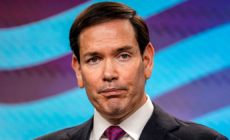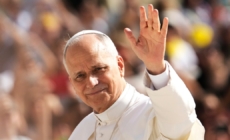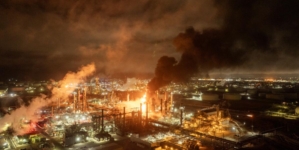Karol Nawrocki (L) with Alexander Stubb during their recent meeting.
After a recent meeting with newly elected Polish President, Karol Nawrocki, in Helsinki, Finnish President Alexander Stubb has declared that imports of Russian oil to Slovakia and Hungary “must end”. The justification he makes, namely that sanctions will cripple the Russian war-machine, have been proved entirely wrong by developments on the Ukrainian battlefield.
The political differences between Hungarian Prime Minister Viktor Orbán and Alexander Stubb go back years and are well documented. In a nutshell though, in 2018 the Hungarian PM has opposed Stubb’s candidacy for the presidency of the European Commission, championing Germany’s Manfred Weber instead. Viktor Orbán’s justification for his preferences was that in his opinion Stubb was a “pro-migration” politician. In reality, Weber has turned out to be no different from Stubb with his passionate loyalty towards Angela Merkel’s disastrous migration policies, but the Finnish politician had his political ambitions thwarted anyhow. Stubb, in turn, has been the most vocal advocate of the expulsion of the Hungarian government party, Fidesz from the European People’s Party (EPP).
Alexander Stubb (L) with Manfred Weber at the 2018 EPP Congress in Helsinki. EPPGroup- photos : Laura OJA
Ever since Stubb has attacked the Hungarian government on multiple forums, especially since the outbreak of the Russian-Ukrainian war. The Finnish President, a passionate advocate of supporting Ukraine by financial and military means, has also joined the European left’s chorus condemning Hungary’s advocacy of a negotiated settlement in Ukraine. In consequence, Hungarian and Slovakian energy imports from Russia have been in the Finnish government’s crosshairs for some time. Yet if this is genuinely an issue they believe could affect outcomes on the Ukrainian battlefield, one must question their conspicuous inconsistency in another matter. Not so much in what they have said, but in what they continue to keep omitting from their communications.
The EU has been one of the largest importers of Russian LNG in the past years – in 2024 alone the bloc has imported over 16.6 million tons of Russian gas. With this the share of Russian LNG on the European market rose from 15% to 20%. And if one thought this is only an emergency measure meant to help ease high energy prices for the European industry, then one must point to the fact that some 20% of this is re-exported for profit. In the first half of 2025, the EU had exported over 4.5 billion Euros worth of Russian LNG, compared to 3.5 billion in the previous year. None of this was heading towards Hungarian users. It is all the more concerning therefore that Mr. Stubb should single out Russian oil imported through the Druzhba pipeline as the only commodity generating income for the Kremlin.
It is also hard to deny the fact that the entire strategy of a series of ineffective sanctions on Russia has completely failed to change the course and desired outcome of the war. Russia has not run out of weapons or ammunition, has not run out of money, the Russian economy grew 4.3% in 2024 (EU 1%), Putin has not been overthrown, and basically all the fanciful predictions of the “Stubb camp” have been proved entirely false.
Adding insult to injury for the Finnish President, Orbán was invariably proved right on migration as well, the topic that originally put a wedge between the two politicians. Violent and sexual crimes have skyrocketed in Finland in the past years, and there is little doubt about the correlation between the spike in lawlessness and the government’s naive immigration policies. Sexual violence among Afghans and Congolese migrants is 12 times higher than among native Finns, while it is 15 times higher among Syrians.
The integration of the ever-growing migrant population has also been an abject failure, they continue to be a burden on healthcare, housing, schools and the social system. Studies prove that they have little positive effect on the Finnish economy, and represent very little yield as far as the active workforce is concerned. All in all, President Stubb has very little to support his demands towards Hungary when it comes to Russian energy supplies, just as he is unable to present any facts that would suggest that he has been vindicated in terms of his enthusiasm for mass migration from third-world countries.
As a side note, it is notable that the newly elected Polish President is engaging in discussions with European leaders where sensitive policies of national strategic outcome are discussed in a context that is contrary to the position of the Hungarian government. Surely, there would be a strong reaction from the Polish establishment should President Tamás Sulyok visit some of Poland’s political foes and take part in talks about the disruption of their energy supplies. In fact, Mr. Nawrocki has held a series of talks with everyone from Baltic leaders to Donald Trump in recent days. In Budapest, many feel that his first trip should have lead to Hungary, but it was not to be.
Polish conservatives continue to learn the lessons regarding the Morawiecki government’s failure to stop the power-grab of the Donald Tusk regime. Signs are that Poland’s new conservatives, gathered around the Konfederacja party, are significantly more perceptive towards reading the signs of our times, as well as learning from the mistakes of the past than the legacy right-wing represented by the Law and Justice movement behind Mr. Nawrocki.
Related article
FM Szijjártó: Hungary Needs Diversification, Not Replacement, in Energy Policy

Foreign minister warned in Milan that cutting Russian energy would threaten Hungary’s supply security, announces major new long-term deal with Shell.Continue reading
Featured Image: Mikolaj Bujak/KPRP
The post Why Finland’s President Wants to Cripple Hungary’s Energy Supplies appeared first on Hungary Today.
Source link





























